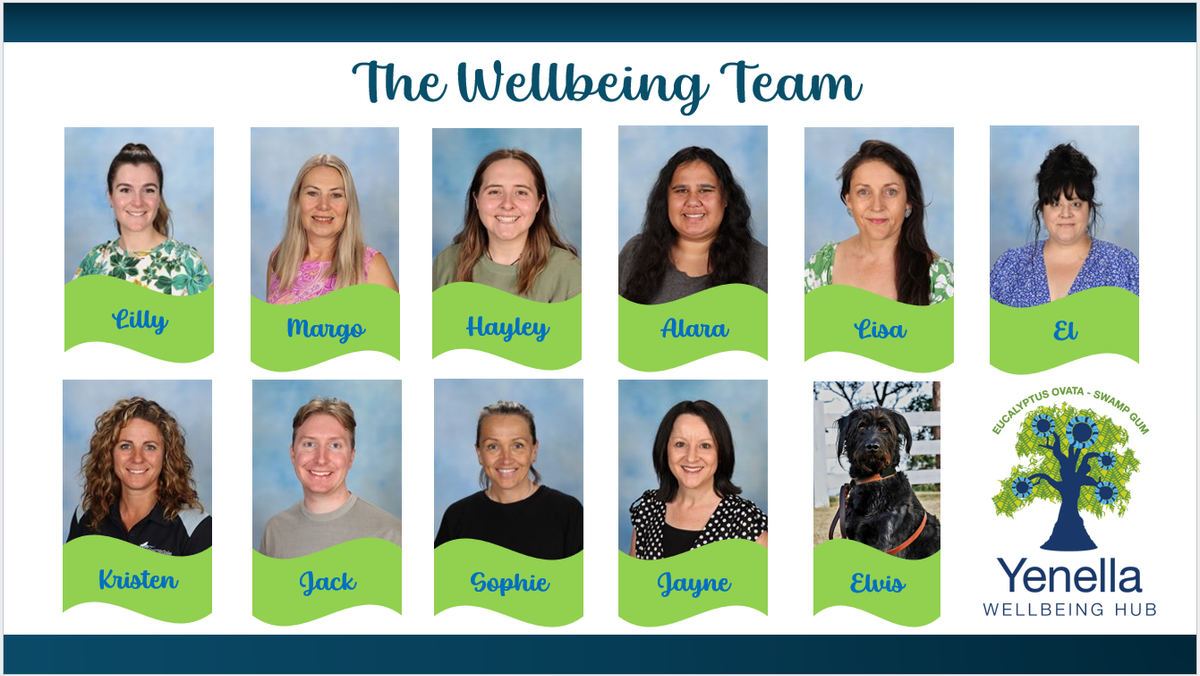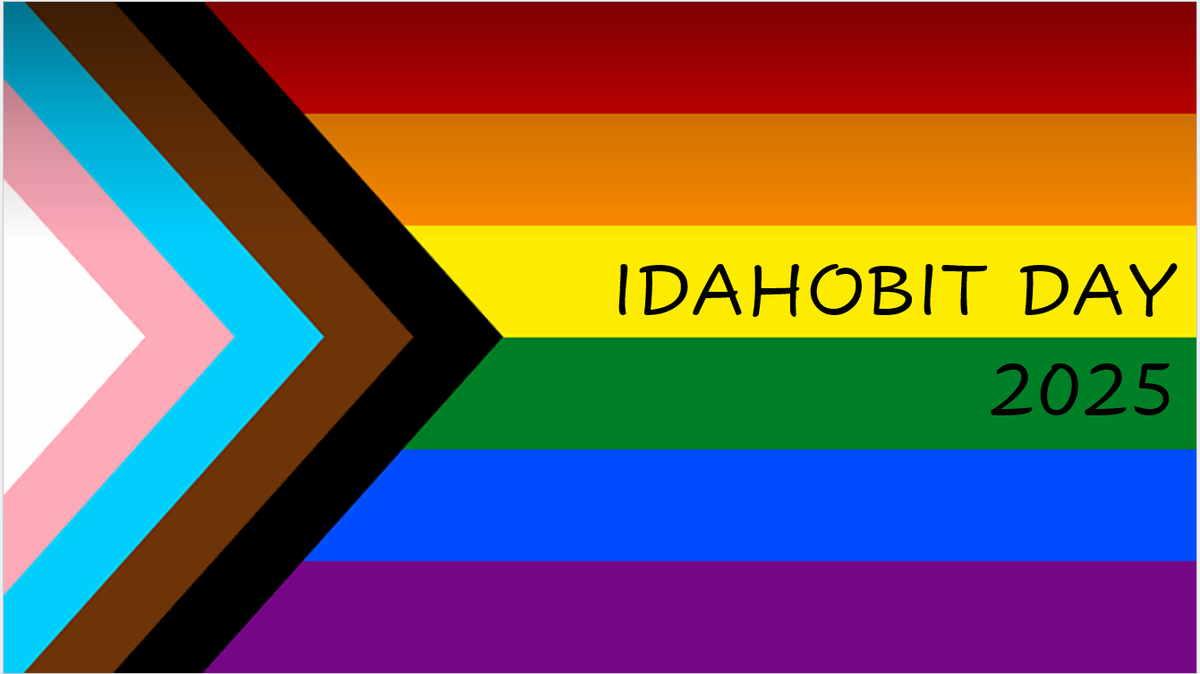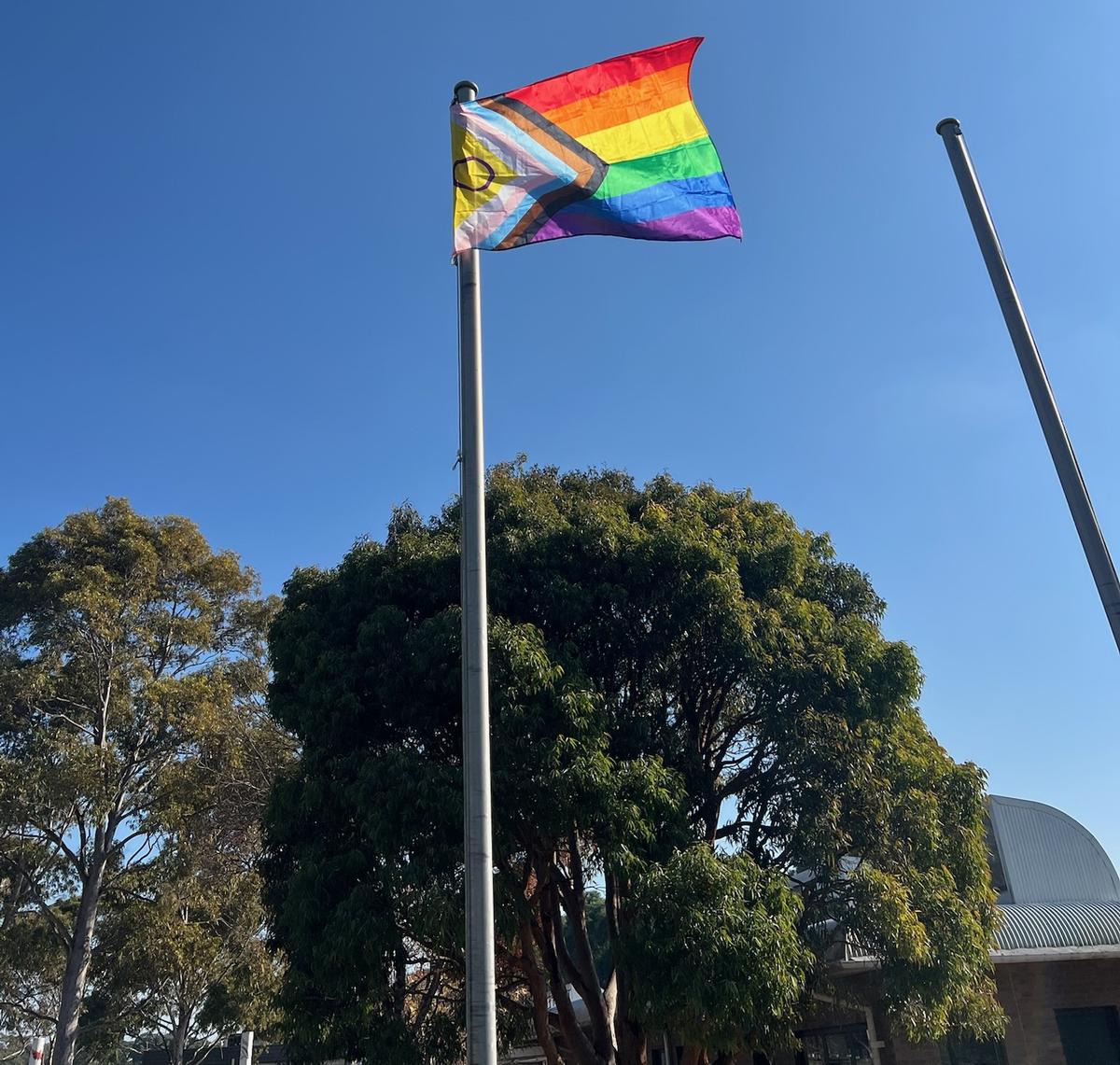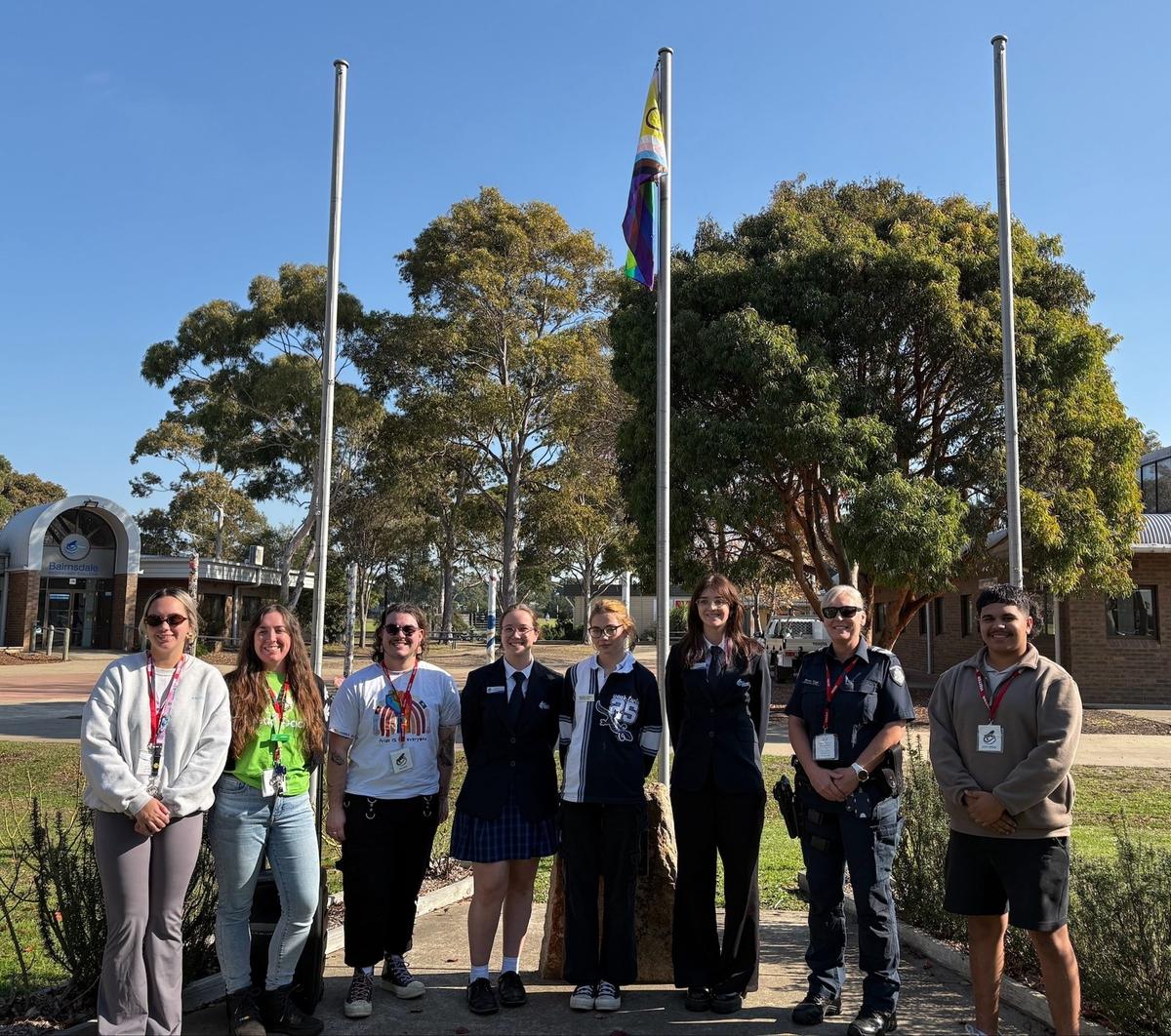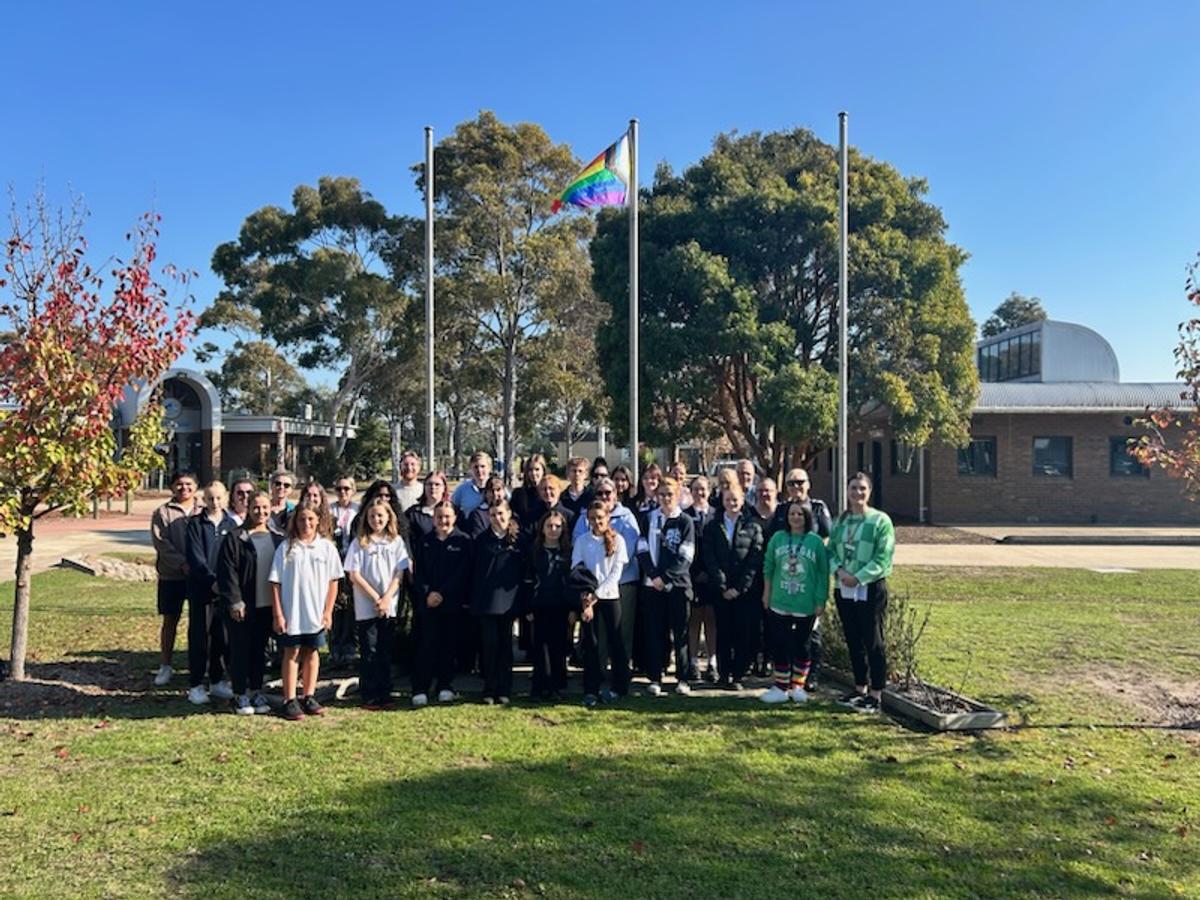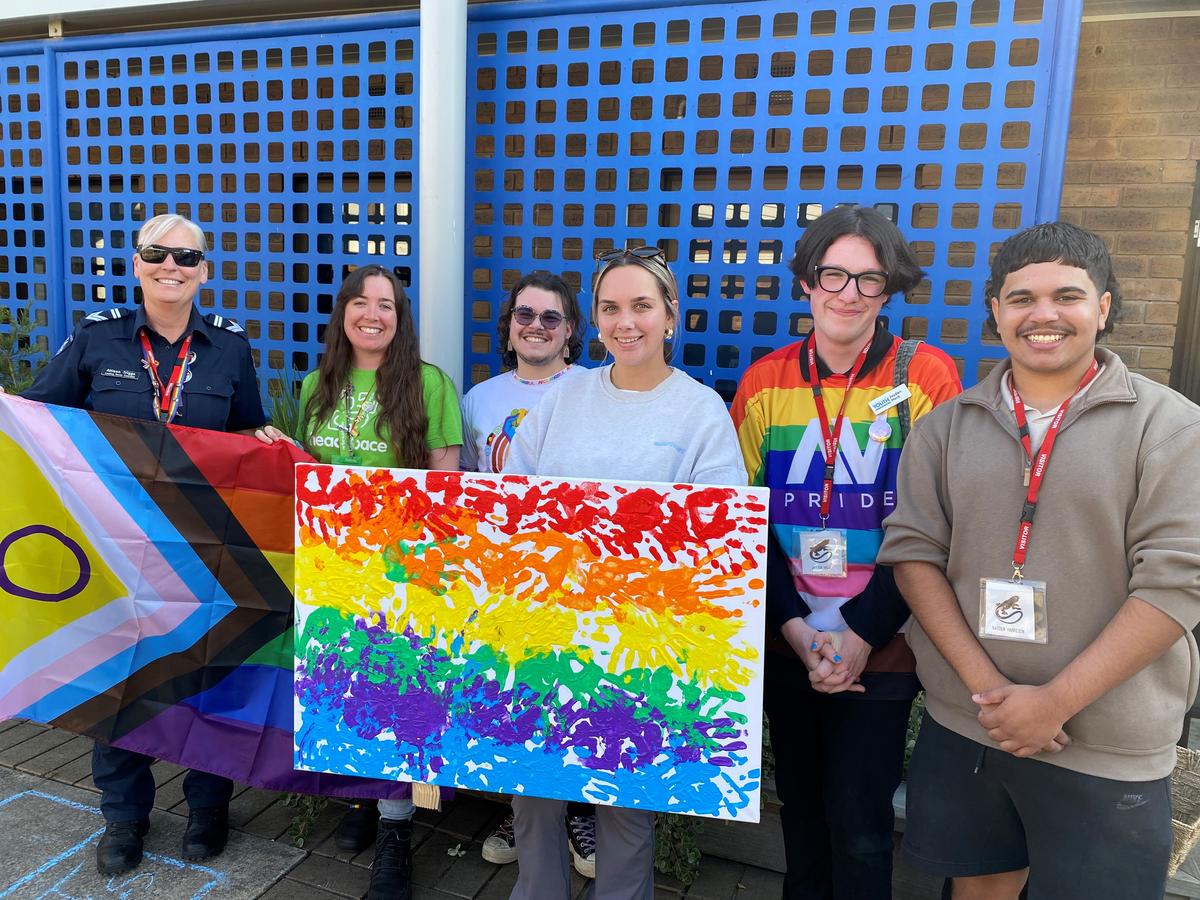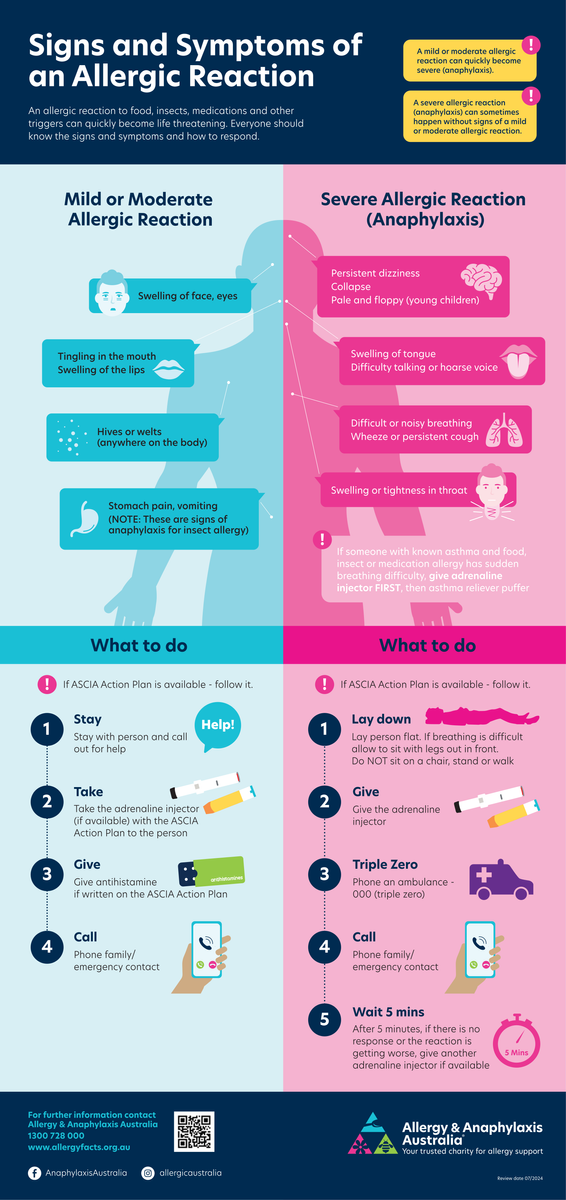Wellbeing
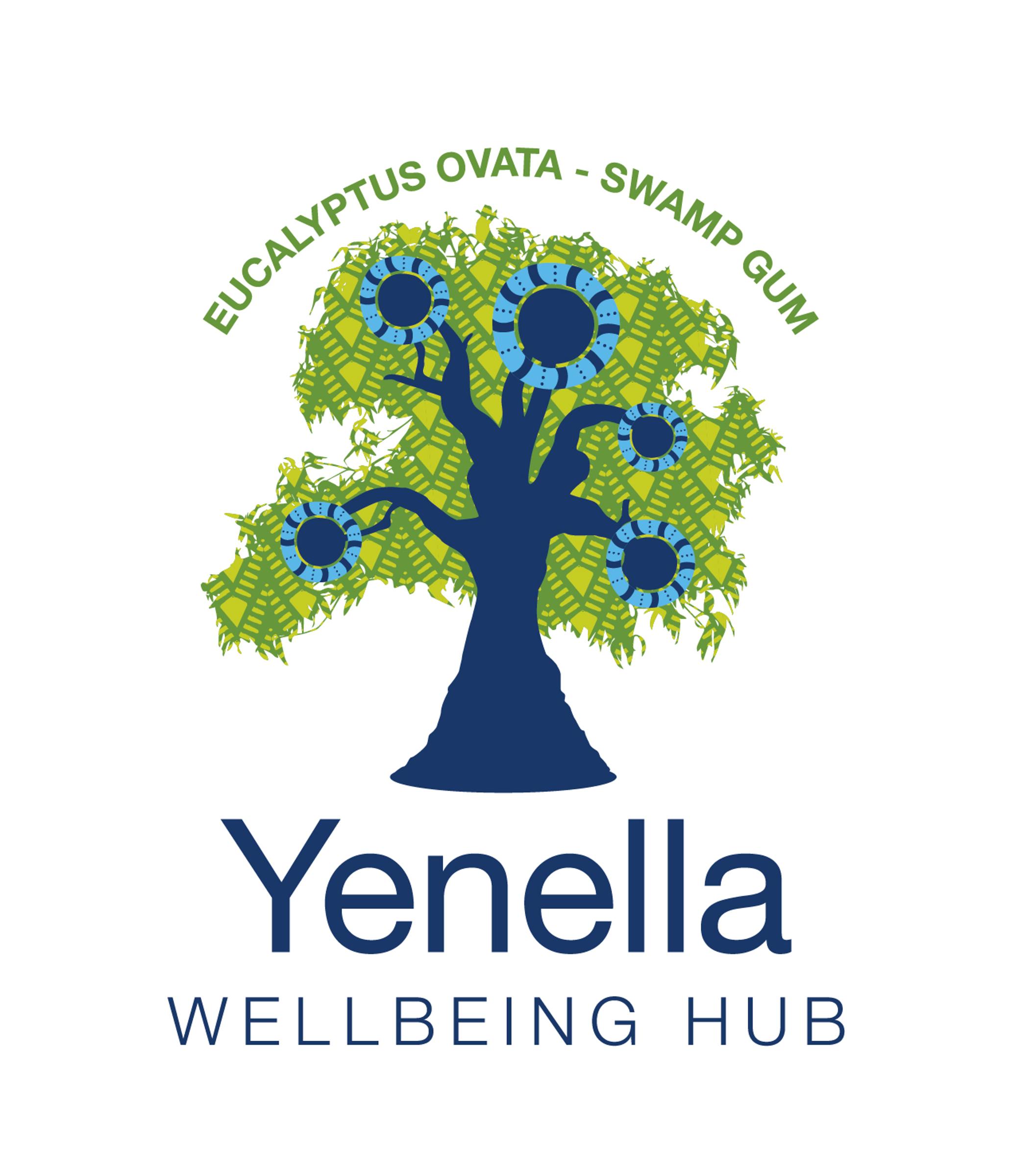
On Friday 16th May, the College acknowledged IDAHOBIT Day (International Day Against Homophobia, Biphobia, Intersexism and Transphobia).
Celebrated annually on May 17th, IDAHOBIT Day is a significant event observed to continue the fight against prejudice, discrimination and inequality faced by the LGBTQIA+ community.
The day kicked off at BSC with staff, students and community partners, Headspace, H.E.Y Project, Bairnsdale Police and the East Gippsland Shire Council, raising the Pride Flag in support of the LGBTQIA+ community. Following this, students delivered meaningful speeches to all those in attendance, aimed at building understanding about inequality and discrimination, and encouraging a welcoming, inclusive environment for all.
Break 2 activities held later in the day were a smashing success, with many students taking part in the various activities on offer from cupcake decorating, badge making, chalk drawing, and connecting with external guests. We extend our thanks to all students and staff who helped out or stopped by to join in the fun. We also wish to express our gratitude once again to our visiting guests for their continued support of these very important events.
Schools play a crucial role in creating safe and welcoming environments for all students and staff, and IDAHOBIT is a powerful reminder of the need to challenge discrimination and promote belonging for all.
-------------------------------------------------------------------------------------------------------------------------------------
HOW TO APPRECIATE THE SMALL THINGS
To appreciate the small things, practice mindful observation, cultivate gratitude, and engage in activities that foster appreciation, like journaling, spending time in nature, or simply slowing down and savouring everyday moments.
1. Practice Mindful Observation:
- Pay attention to your surroundings: Notice the details of your environment, such as the colours of a flower, the sound of birds chirping, or the warmth of the sun on your skin.
- Engage your senses: Take time to fully experience the world around you, whether it's the taste of a delicious meal, the smell of rain on the pavement, or the feel of soft fabric.
- Slow down and savour: Resist the urge to rush through your day and instead take time to appreciate the simple pleasures, like a yummy treat or a walk in the park.
2. Cultivate Gratitude:
- Keep a gratitude journal: Write down things you are thankful for each day, both big and small.
- Practice gratitude rituals: Start or end your day with a few moments of reflection on the good things in your life.
- Express your gratitude: Tell people you appreciate them and acknowledge the small acts of kindness they do for you.
- Focus on the positive: Shift your attention from what you lack to what you have and appreciate.
3. Engage in Activities that Foster Appreciation:
- Spend time in nature: Connect with the natural world by going for walks, hiking, or simply sitting in a park.
- Practice mindfulness: Engage in activities that require your full attention, such as meditation, yoga, or reading.
- Engage in creative activities: Express yourself through art, music, or writing.
- Connect with loved ones: Spend quality time with family and friends and express your appreciation for them.
Bake something: Baking teaches us to appreciate the value of small wins along the way
----------------------------------------------------------------------------------------------------------------------------
Food Allergy Week was created by Allergy & Anaphylaxis Australia to raise awareness of food allergy in Australia. Australia has one of the highest rates of food allergies in the world, with more than 1.5 million Australians living with a food allergy. We also have one of the highest rates of hospital anaphylaxis admissions in the world.
During Food Allergy Week 2025, Allergy & Anaphylaxis Australia calls on all Australians to unite to help increase awareness and share information on what we can all do to improve safety for people who live with food allergies. Awareness and education help reduce the risk of allergic reactions and effectively treat potentially life-threatening emergencies when they happen.
FOOD ALLERGY - The most common food allergens are cow’s milk (dairy), egg, peanut, tree nuts, sesame, fish, crustacean, mollusc, wheat and soy. As well as these common allergens, lupin must also be listed on a packaged food label, no matter the amount.
Many other foods including kiwi fruit, banana, chicken, mustard and celery can also cause allergic reactions, including anaphylaxis. There are more than 170 foods known to have triggered allergic reactions.
INSECT and TICK ALLERGY - Common causes of an insect allergy are Honeybees, Wasps, Jack Jumper Ant, Native Australian Bees and Ticks.
DRUG ALLERGY - Many people have experienced side effects to a drug (medication), such as a headache, stomach upset or mild nausea. These types of unwanted reactions are often predictable, meaning they are known possible reactions to a medicine.
Some people can have an allergic reaction to a drug. Allergic reactions are different to side effects and occur when the body’s immune system sees the drug as harmful and reacts to it.
ENVIRONMENTAL ALLERGY- Environmental allergens are substances in the air, environment, or on surfaces that can trigger allergic reactions such as: Animal Dander, Dust Mites, Mould and Pollen
The signs and symptoms of an allergic reaction:
- Usually occur within minutes after exposure to an allergen but can take up to 2 hours to develop.
- Symptoms of an allergic reaction may be mild or moderate at first but can worsen quickly to a severe allergic reaction (anaphylaxis)
If your child suffers from any allergies, please get in contact with the College and arrange with your local GP to develop a medical Action Plan. For more information on Allergies and Anaphylaxis, please visit: Welcome to Allergy & Anaphylaxis Australia

